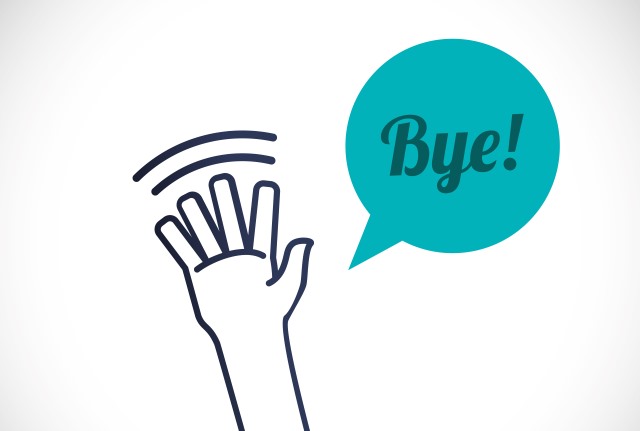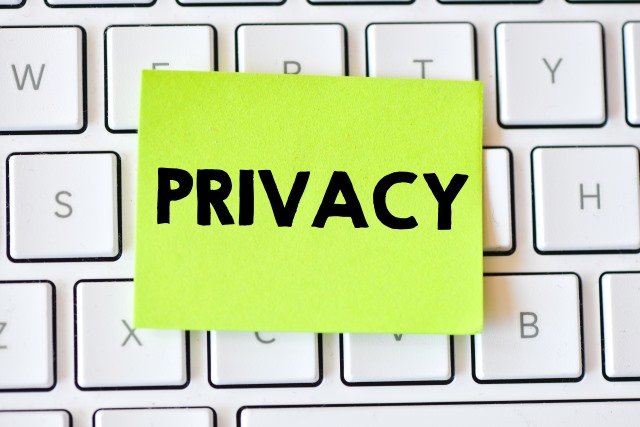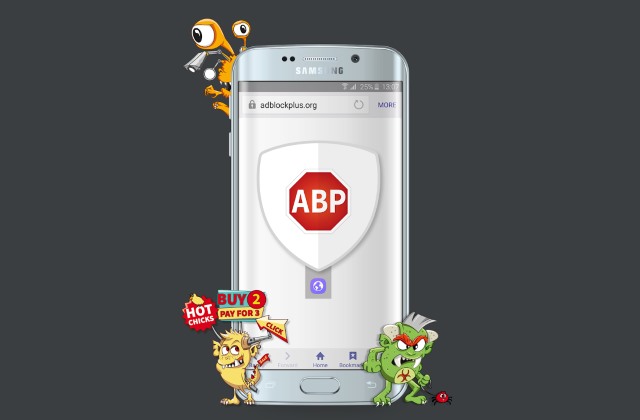
Adblock Plus wants to know why you're blocking ads (!)
Adblock Plus has been in the headlines quite a lot recently. Adblocking is certainly popular, but the company needs to strike a balance between keeping users happy, and maintaining a good relationship with advertisers. The Acceptable Ads program is part of this, but at its second #CampDavid session there have been some further ideas about the future of adblocking.
There was talk about what should be viewed as an 'acceptable ad', and an Acceptable Ads Committee will oversee this. But the discussion between Adblock Plus and advertisers brought up an important question: just why do people install adblockers?

ISP filters could be harming UK users’ love lives
Content filters are supposed to protect you from bad stuff, but they can have unexpected side effects and block things you want to access.
As we approach Valentine's Day a new survey by UK broadband comparison site Broadband Genie has discovered that filters may be preventing Brits from finding love by blocking online dating sites.

More consumers now care about how businesses handle their data
Nearly three million Brits have decided to leave a service provider that got hacked, a new research by security firm Privitar reveals. The report shows that 23 per cent of Brits have been affected by a security breach at some point, and 24 per cent of these reacted by switching providers.
The company says consumers now pay attention to how well a company handles data, when making choices. Even though data handling has become one of the key selling points for many companies, 52 per cent of consumers say it’s difficult to find any information on how companies store and use their personal information.

Hackers leak contact information of 20,000 FBI employees
Hackers have leaked the contact information of 20,000 FBI employees, which follows the previous day's release of 10,000 Homeland Security employees' data.
The hackers communicating through Twitter, claimed "Well folks, it looks like @TheJusticeDept has finally realized their computer has been breached after one week".

Microsoft Edge's InPrivate mode no longer records your browsing history
When you use a browser's incognito mode you expect it to keep that browsing session private. That is its purpose, after all, to let you access websites without saving any data or information that might be used to trace your visits from the browser. Thing is, at least in Microsoft Edge's case, its InPrivate mode has not exactly worked as advertised -- in fact, it did not work at all.
Microsoft Edge's InPrivate mode is a "privacy nightmare", as my colleague Mark Wilson puts it. Instead of completely ignoring your session, Microsoft Edge actually records your browsing history, making it possible for others to find out exactly which websites you have accessed. However, the software giant now claims to have addressed this privacy issue in the form of a new Windows 10 update.

France orders Facebook to stop tracking non-users
Facebook is facing a great deal of heat in the European Union, where many countries are concerned with the ways in which the social network collects data and how it uses cookies to track Internet users.
The CNIL, France’s data protection authority, has issued a formal notice to Facebook, because it fails to comply with European data protection law. CNIL has given Facebook three months to make the necessary changes to comply with the EU’s laws. If the company is able to do this, it will not face sanctions from the data protection agency. Facebook is currently reviewing CNIL’s order which it is confident that it currently complies with.

Windows 10 phones home (A LOT) even with all reporting and telemetry disabled
One computer user has become so disillusioned with Windows 10's spying features that he has been driven to using Linux Mint as his primary operating system. But Voat user CheesusCrust was curious to find out just how pervasive Microsoft's privacy invasion is. The results of his investigation are quite staggering.
Using a router kitted out with DD-WRT, and a copy of Windows 10 Enterprise installed in a virtual machine on his Linux laptop, he started by disabling every single one of the tracking and telemetry features found in the operating system. Eight hours later, 4,000 connection attempts to 93 different IP addresses were logged, with most of these IPs addresses being linked to Microsoft.

Industry's reaction to Europe's new EU-US Privacy Shield
After months of negotiations, this week saw the European Commission (EC) announce a replacement to Safe Harbor after it was declared invalid in October 2015.
The new framework, dubbed the EU-US Privacy Shield, has been put in place to protect the rights of Europeans when their data is transferred to the United States and ensure legal certainty for businesses.

Brits say their smartphone data is worth £6,504
Choosing between the wallet and the smartphone, the majority of Brits would rather have their wallet stolen, a new research by the Ponemon Institute and Lookout has found.
But that’s not because of the smartphone’s quality, value or price. It’s what’s inside that counts.

The future of the NSA: fight the hackers or embrace the hackers
With its well-known habit of uncompromising surveillance, the NSA has earned itself something of a poor reputation among internet users. But while the spying side of the agency is what it is most famous for, it is actually made up of two different divisions: offensive and defensive.
Later this week the NSA is expected to announce an internal restructuring that will see the two divisions merging. This presents the agency with an interesting predicament: does it continue to work to fight the efforts of hackers, or does it adopt hacker-like techniques to help gather data? Experts says that the merger is a mistake, largely because the aim and modus operandi of the two departments are diametrically opposed.

Snooper's Charter is vague and confusing
A group of MPs has criticized plans put forward in the Draft Investigatoy Powers Bill after consulting with several top technology firms, including the likes of Apple, Facebook and Google.
The Science and Technology committee has slammed the bill as being vague and confusing, issuing a 43-page report outlining its views on key issues such as encryption and data collection.

New risk management software helps companies handle sensitive data
Endpoint security and digital investigations specialist Guidance Software is launching a new solution to help organizations identify and classify confidential data.
EnForce Risk Manager allows organizations to reduce their surface area of risk, limiting the potential damage from breaches and improving their ability to comply with global data protection rules.

Android 6.0 Marshmallow update brings Adblock Plus to Samsung phones and tablets
Earlier today we learned that a new API is bringing adblocking to Samsung's own mobile web browser. Adblock Fast was the first to take advantage of the new option and now, hot on its heels, comes the big guns -- Adblock Plus.
Today Samsung is rolling out an Android 6.0 Marshmallow update and once this has been installed, Adblock Plus can also be installed. The extension brings content blocking capabilities to Samsung's own web browser, but you'll have to jump through the relevant hoops to gain the privacy and bandwidth preserving capabilities.

It's all a facade: Encryption may do nothing to reduce surveillance or increase privacy
Living in a technological age where there is a near-fanatical obsession with privacy, a move towards encryption seems to make perfect sense. While there have been calls from some governments to ban encryption and demands for decryption keys to be handed over, there is a drive by companies and online services to try to increase security and privacy with encryption.
But a new report (Don't Panic: Making progress on the encryption debate) from Harvard University's Berkman Center for Internet & Society suggests that encryption may be all but pointless when it comes to curtailing surveillance. While governments and surveillance agencies may balk at the idea of people using encryption to 'go dark' online, and many people embrace the idea as a means of increasing their privacy, the report suggests that the task of surveillance is not going to be made impossible, and could be helped by the Internet of Things (IoT).

Emotionally retarded? Facebook Likes soon to be bolstered by just 5 new 'reactions'
The 'liking' of online content goes hand in hand with using Facebook. It's a simple idea, and one that has been copied by the likes of Google, Twitter and countless other sites. But as great as the iconic Like button is, it's hugely limiting and insufficiently expressive. There was talk of Facebook introducing a Dislike button but this idea (if it ever existed) was canned in favor of 'reactions'. Facebook has been testing reactions for a while, and now the feature is on the verge of a global rollout.
Mark Zuckerberg said this week that the glorified emoji will spread to all users 'pretty soon', but while people will undoubtedly embrace the option to do something other than just 'like' friend's post (how appropriate it is to 'like' the status "My cat just died"?), reactions are still very limited. Users will be restricted to expressing just five emotions -- cut down from six as testers were apparently too stupid to understand a 'yay' emoji -- meaning that reactions will be almost as limiting and blunt as the humble Like button.
